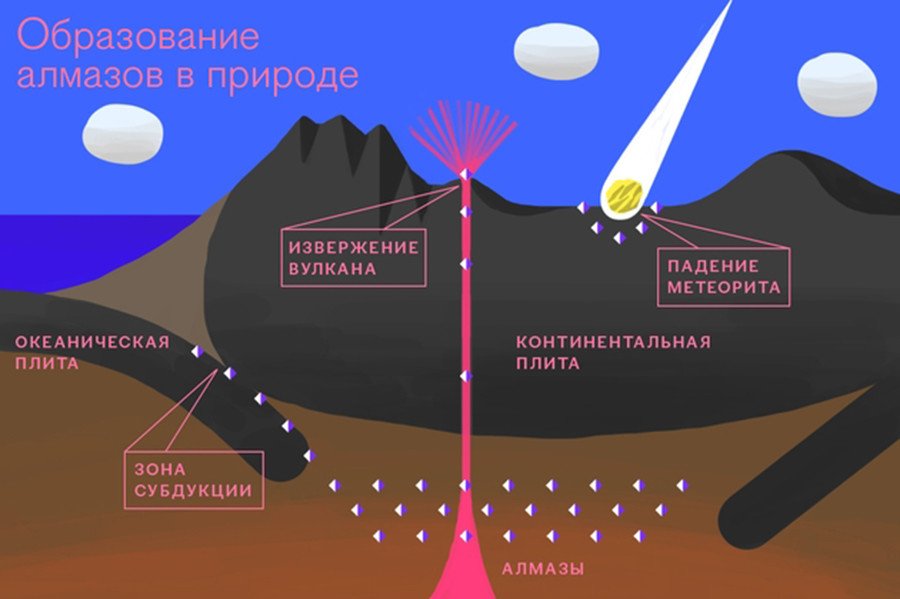Unique diamonds discovered in frozen lava sample from Kamchatka

Diamonds discovered in the frozen lava of the Tolbachik volcano in Kamchatka have geological and mineralogical characteristics so unique , that Russian scientists, thrilled with the finding, had to classify the gems as a completely new type of diamond.
“The solidified lava of the Tolbachik eruption [in 2012-2013] carries within it a new and never-before-seen type of diamond,” the Russian Ministry of Science announced. “They were named – Tolbachik diamonds.”
The new diamonds were formed by volcanic gases under pressure and are a result of crystallization “under the influence of electrical discharges of lightning,” geologists say. Russia's Far Eastern diamonds, could be the natural realization of a 1964 French patent which suggested producing synthetic diamonds from gas using an extra powerful electric discharge, scientists say.
To the naked eye the gems look similar to synthetic diamonds, but their geological and mineralogical characteristics differ from any other known types of precious gems. The unique diamonds are not formed in the magmatic melt as typical volcano diamonds are. The Tolbachik diamonds are also large for volcanic rocks, ranging from 250 to 700 microns.
“From a small sample of solidified lava there were several hundred diamonds recovered – that’s a lot! This are the number of diamonds that can only be compared with abnormally high enrichment of diamond lava rocks on the field of Dachin in India (77 diamonds in a 1-kilogram sample) and an unusual magmatic rock in Canada (1,500 diamonds in 28-kilogram sample).”
READ MORE: Three volcanoes erupt in Kamchatka Peninsula (PHOTOS)
The Tolbachik volcanic complex on the Kamchatka Peninsula in Russia's Far East consists of two volcanoes, Plosky Tolbachik standing 3,085 meters toll and Ostry Tolbachik peaking at 3,682 meters.
Its eruptive history stretches back thousands of years, but the latest fissure eruption started in November 2012 and sent rivers of lava over tens of kilometers in the summit area and the southern slope.













